Hope from underground. . . Lithium mining ushers in development, employment to a village

Raymond Jaravaza, Saturday Chronicle Correspondent
The first time he heard the word lithium – an alien term to the village head and his subjects at the time – Bangani Masango assumed it was one of those high-tech gadgets that he once saw in the hands of the “city boys” that only come to his village during the festive season.
Having spent his entire life in a village tucked away in Fort Rixon, Insiza District in Matabeleland South, where life is quiet, where early mornings are punctuated by the acoustic chorales of livestock and the melodious songs of birds, the word lithium made no sense to him. Such was the simple life that Village Head Masango was used to until heavy machinery started rolling into the village.

Part of the plant at Zulu Lithium Mine
Together with his fellow villagers they would soon learn that lithium – a highly priced mineral that is a vital component in the manufacture of electric cars – lies in the belly of the earth that their cattle, goats and donkeys graze on.
Masango’s young children run to school every morning on that same land that has hidden a treasure he had no idea would transform the lives of villagers in his area of jurisdiction.
His village is the epicentre of a huge lithium project that is estimated to be in the region of hundreds of millions of United States dollars.
It’s a figure Masango can only gasp at.
But for him and his fellow villagers such figures mean nothing without meaningful development in their village and surrounding areas.
All they want are jobs.
Masango is happy when a previously unemployed youth wakes up in the morning clad in blue overalls, walks a kilometre or so to the new lithium site that opened up close to his village.
Masango is a humble man, in late 30s, but in the last three months he has seen so much. Strangers are knocking on his doors – a humble rural home a few kilometres from the Premier African Minerals’ Zulu lithium project – asking for jobs.
Jobs are scarce in Zimbabwe, let alone deep in the heart of an Insiza District, where the only source of income is agriculture – small scale farming to be precise.
Saturday Chronicle encountered five gentlemen who told this newspaper crew that they are from Bulawayo and are looking for jobs in the sleepy village in Insiza.
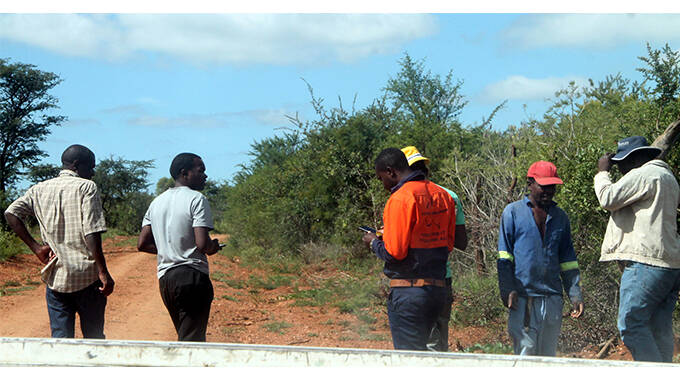
Job seekers at the mine
As per tradition, they had to go to the village head’s home and seek the local leadership’s authority.
They kneeled and introduced themselves.
“We cannot employ people from outside the local villages for menial jobs such as security and cleaning services when our own children are looking for employment. It’s not fair to our own children, brothers and sisters,” Masango tells the Saturday Chronicle after the five gentlemen left his homestead.
Premier African Minerals understands the impact of working with the local leadership when it comes to the emotive issue of hiring locals, thus Masango – an uneducated village head by his own admission – finds himself in the thick of things when it comes to the employment policy of the multi-million-dollar company.
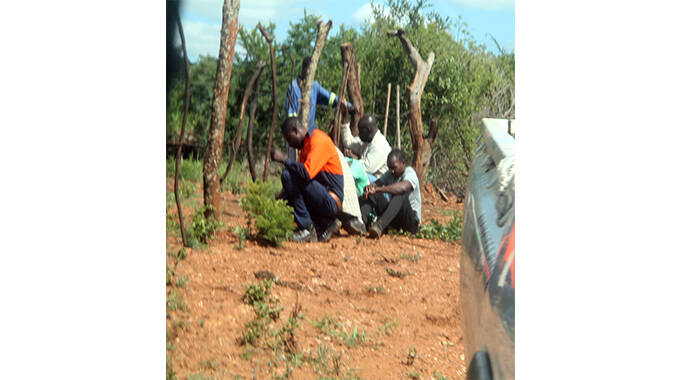
“Just last week, the company asked for 30 employees and we sat down as the local leaders from the surrounding villages and agreed that each village must bring five locals to take the jobs. As we speak, five young men from my village are wearing blue overalls right now and are working at the site.
“We are not only seconding men for jobs, young women from this same village are also employed as security guards at the site and we have been promised that more women will be employed as cooks when the project grows bigger and bigger,” said Masango.
Earlier on, the Saturday Chronicle had taken a detour at the multi-million project and observed two women manning the site gate as security guards.
Masango, however, wants the project owners to do more to develop the area.
By law, companies are compelled to engage in corporate social responsibility projects – a form of private business self-regulation which aims to contribute to societal goals of a philanthropic and charitable nature – to improve the lives of local communities where a company operates.
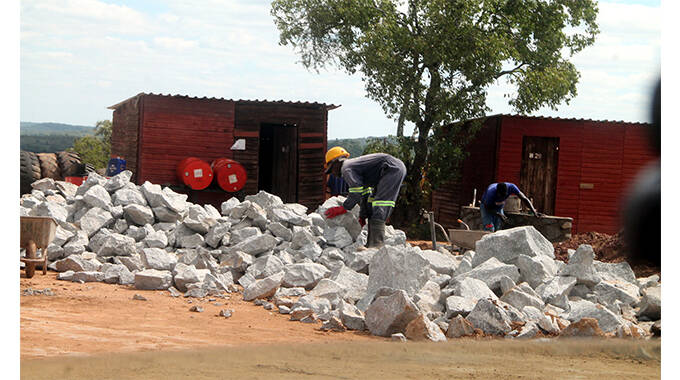
Fort Rixon Lithium project.
“They are employing locals, which is very commendable, but we need more. We want clinics, schools and tarred roads,” says Masango.
Four kilometres away, on a dusty stretch of rural road sits a primary school that has benefitted from the lithium project.
Teachers are not allowed to speak to the media without the express authority of the parent ministry so we will hide the identity of this educator.
“If you walk about 200 metres from here in that direction you will see a borehole that was drilled by that company and they said what is left is for their guys to erect a structure for a Jojo tank that will be powered by solar to service the school,
“They have also promised to build two classroom blocks and more teacher accommodation. We are hopeful,” said the teacher.
Just like Village Head Masango, the little boys and girls will one day understand what lithium is.

Methuseli Moyo, a veteran journalist and fellow villager in the area where the Premier African Minerals has embarked on the project, said: “This level of development, happening close to villagers’ doorsteps will certainly cause anxiety and excitement and in our case after the project was explained to us (villagers) by the company and Government through the coordinator of the Insiza District office, we are now looking forward to employment and business opportunities.
“Naturally, people are worried that they are going to lose their homesteads and livelihoods but we have been assured that those concerns will be addressed jointly by the Government and the developers of the mine together with the community.
“We are looking forward to a win-win situation and we hope that the spin-offs from the mine will develop the communities.
“Lithium is the most talked about mineral in the world right now so we are very lucky as a village that it has been found in our area so we hope that the government will ensure that the local community is involved in a big way.

Village Head Bangani Masango
“We don’t want to be on-lookers, a number of villagers have been employed, which is very good, we are happy about that.”
The villagers, as part of the project extension, will lose some of their fields and Moyo hopes the compensation fund from the company will sustain the villagers going forward.
“We hope the compensation will help the villagers come up with alternative avenues to sustain themselves through other income generation projects. The road has been serviced, for the first time, in a very long time and we have been promised a lot of developmental projects to come,” he said.
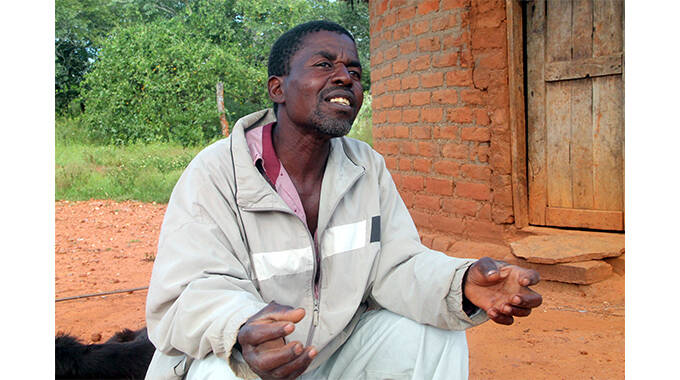
Premier African Minerals’ Zulu directive, Pei Zhenhua (64), whose net worth is US$10, 3 billion, was recently in Zimbabwe to assess progress on the project.
Clad in a white shirt, a pair of black trousers, and sports shoes, Pei humbly stood in a queue as he patiently waited for his turn to be served lunch and ate a modest meal of rice, samp, fried chicken and beef and a variety of vegetables.
Villagers in Insiza District, as humble as they are, can look to a brighter future because of a project that will lift them from poverty to a comfortable existence that every Zimbabwean deserves under the leadership of President Mnangagwa.
@RaymondJaravaza

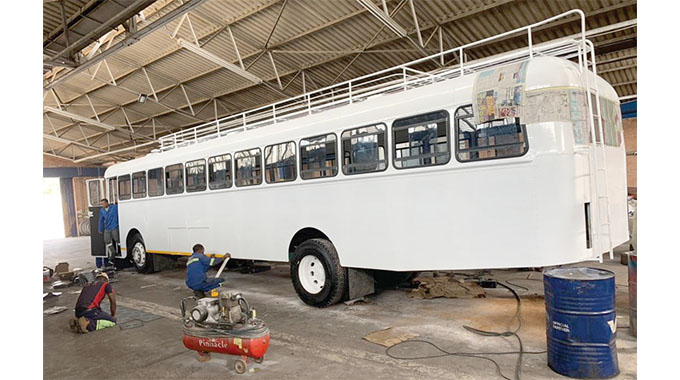

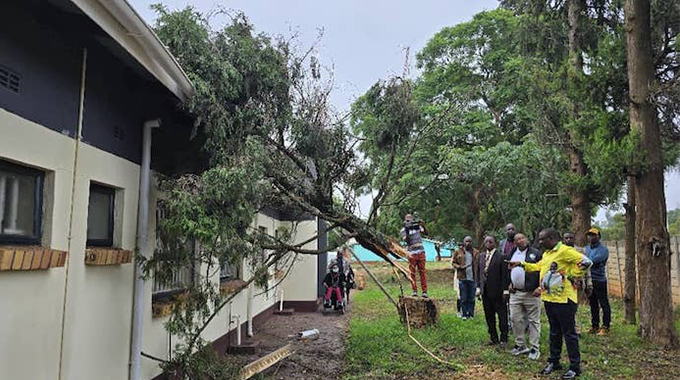








Comments